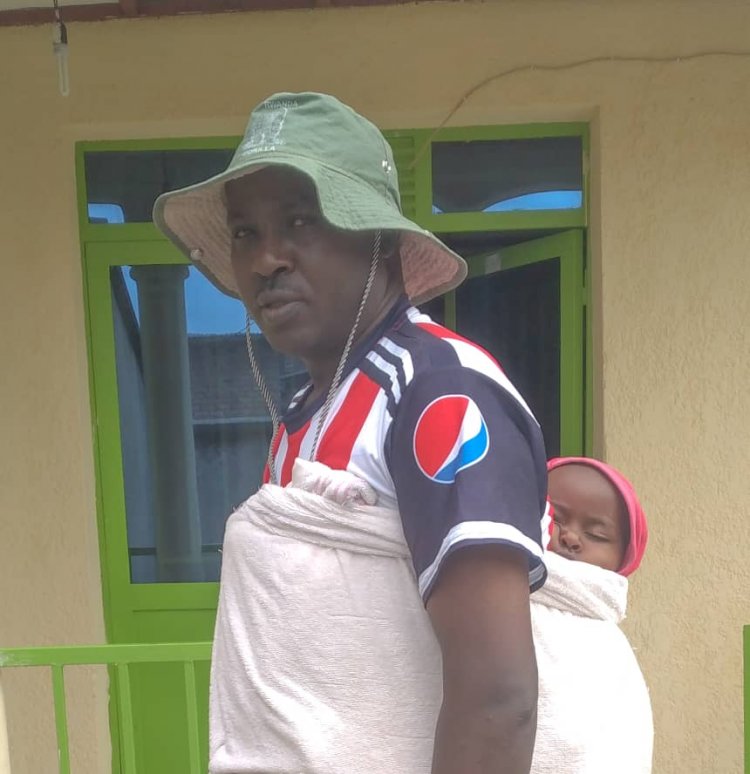
In many African societies, and Rwanda in particular, the role of fathers in raising children has traditionally been limited to providing financial support and enforcing discipline. However, times are changing. A growing number of Rwandan men are embracing active parenting, including carrying and caring for their children — a practice that is having profound positive effects on families and communities.
Carrying a child, once considered exclusively the mother's role, is now recognized as an essential act of bonding, emotional development, and strengthening family ties. In Rwanda, while traditional values often assigned childcare mainly to women, there is a cultural shift recognizing that fathers, too, play a vital nurturing role.
Here are 10 positive impacts of a father carrying and actively caring for his child:
1. Stronger Emotional Bond: Physical closeness builds deep emotional connections between father and child.
2. Boosted Child Confidence: A child carried and cared for by a father grows with a greater sense of security and self-esteem.
3. Modeling Gender Equality: Fathers sharing childcare duties teach children that love and responsibility know no gender.
4. Enhanced Communication Skills: Fathers who spend time carrying and interacting with their children encourage early language and social development.
5. Reduced Parental Stress: Sharing childcare responsibilities lessens the emotional and physical load on mothers.
6. Healthier Father-Child Relationship: Carrying a child encourages empathy and emotional intelligence in fathers.
7. Positive Community Impact: When fathers are seen caring for children, it normalizes shared parenting and challenges outdated stereotypes.
8. Early Emotional Stability: Children with actively involved fathers tend to have fewer emotional and behavioral problems later in life.
9. Building Memories: Moments of carrying and nurturing create priceless, lasting memories for both the father and the child.
10. Promotion of Nurturing Masculinity: It reshapes the concept of masculinity from being just providers to being nurturers and protectors.
Cultural Perspective in Rwanda
In Rwandan culture, raising a child is often described as the responsibility of the whole community: "Umwana ni uw'ababyeyi bombi n'umuryango mugari" (A child belongs to both parents and the extended family).
Traditionally, physical nurturing was left to mothers, but today, Rwandan fathers are increasingly recognized as active caregivers. Programs and initiatives promoting responsible fatherhood are spreading, encouraging men to proudly embrace roles once considered unmanly.
This change strengthens family units and promotes balanced child development, building a future generation that values compassion, cooperation, and shared responsibility.
As Rwanda continues to heal and rebuild stronger families after its history of conflict, engaged fatherhood is becoming not just a choice, but a symbol of national resilience and hope.
 English
English  Kinyarwanda
Kinyarwanda 



 Mathieu KARUMUGABO
Mathieu KARUMUGABO 











